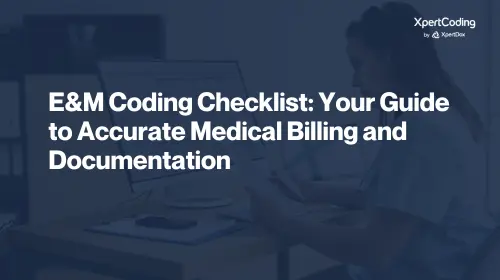
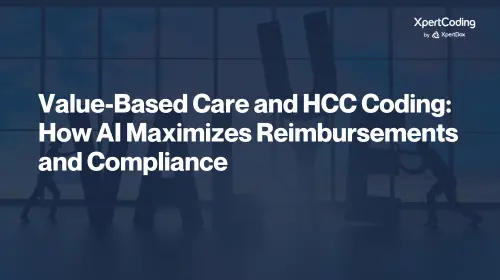
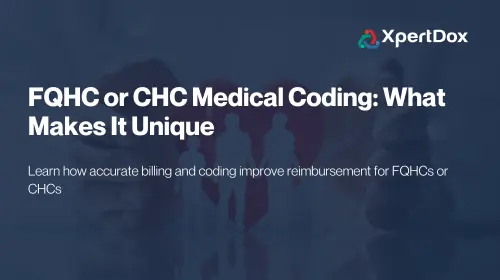
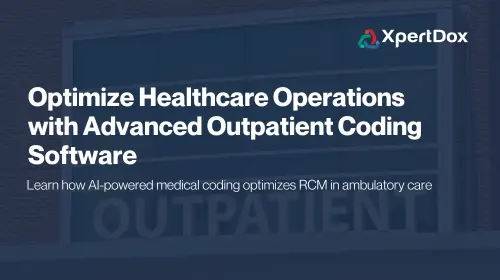
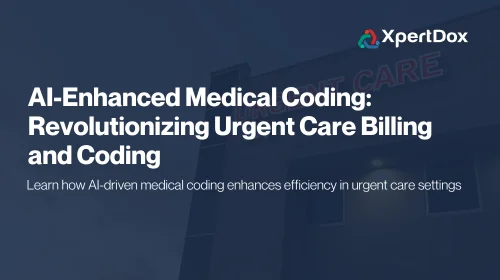
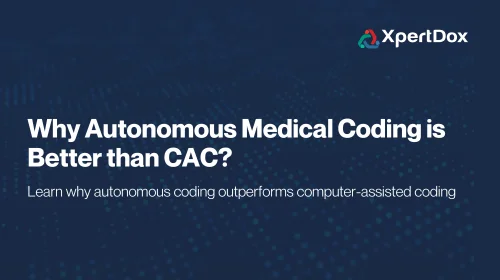
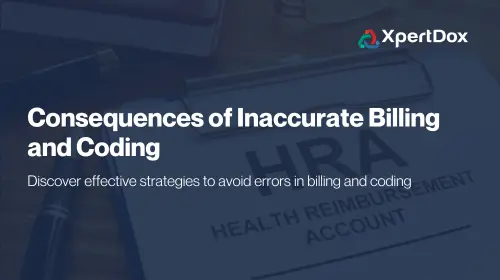
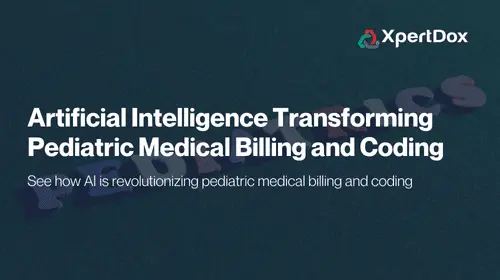
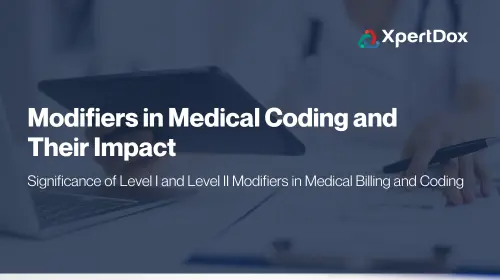
-0966b5230d7c4791403f2a1d74656f15.webp)

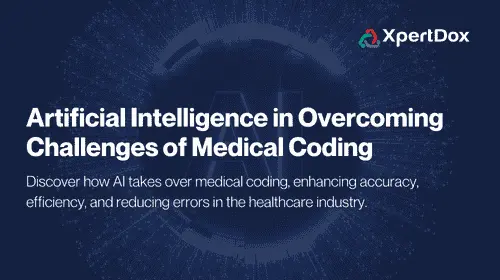
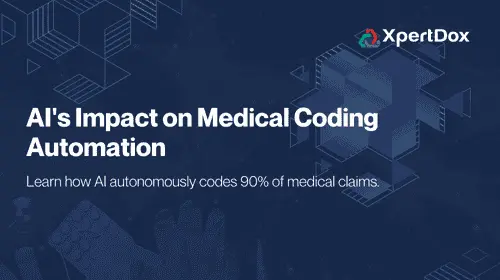
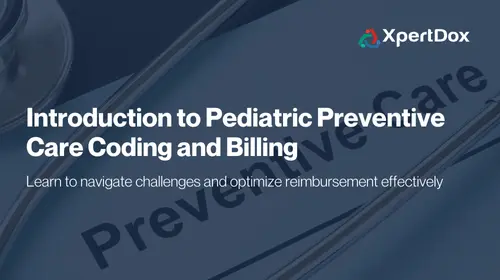
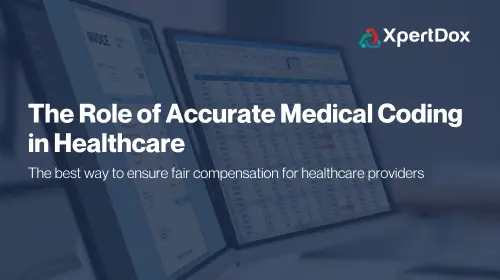
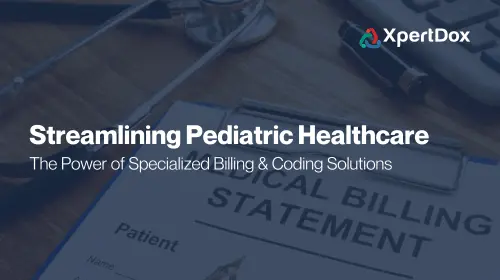

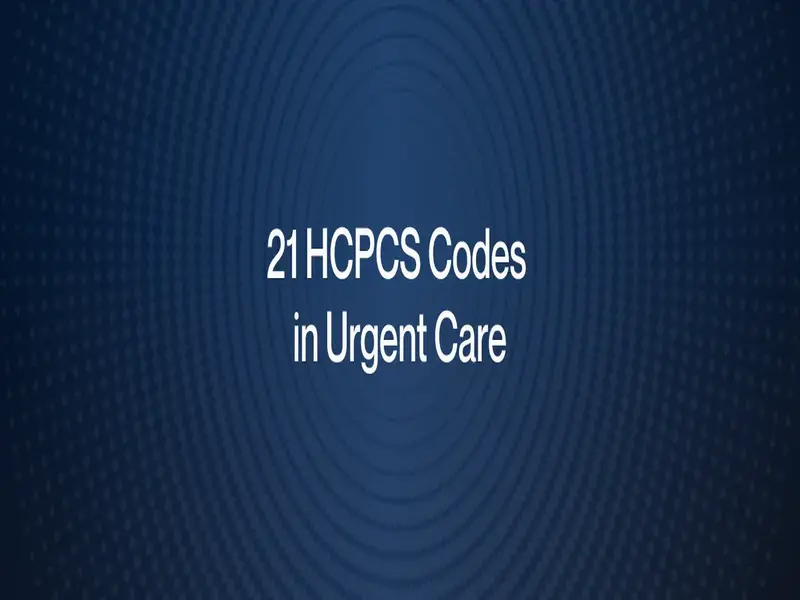



In today's healthcare industry, medical coding plays a crucial role in ensuring accurate and efficient administration of patient information. With the advancement of technology, medical coding software is an essential tool for healthcare providers. In this article, we discuss what is medical coding software and discuss its importance in healthcare.
The healthcare industry is rapidly evolving, with technology playing a pivotal role in its transformation. Among the many tech-driven changes, the integration of Artificial Intelligence (AI) in medical coding stands out for its potential to revolutionize the medical billing and revenue cycle management process. Here, we'll delve into how AI-powered medical coding works and its transformative potential for healthcare providers and patients.

In the ever-evolving landscape of healthcare, organizations are constantly seeking innovative solutions to address challenges and improve efficiency. One area that has gained significant attention is medical coding. Medical coding has traditionally been a manual and time-consuming process that involves assigning standardized codes to medical diagnoses and procedures for billing and payment purposes. As artificial intelligence (AI) advances, an exciting new phase of medical coding is on the horizon for healthcare providers. AI medical coding has the potential to revolutionize the industry by automating and streamlining the coding process, ultimately leading to improved accuracy, efficiency, and cost-effectiveness.

In the intricate realm of healthcare, precision, and efficiency are the cornerstones of quality patient care and smooth administrative processes. Among the vital cogs in this complex machine is medical coding – the systematic translation of intricate medical procedures, diagnoses, and treatments into standardized codes for billing, claims processing, and maintaining comprehensive medical records. While conventional manual coding methods have been the backbone of the industry, the integration of Artificial Intelligence (AI) promises a transformative leap in enhancing the medical coding process. In this blog, we embark on a journey to explore how AI can be harnessed to refine medical coding, streamline operations, and improve the revenue cycle.
In today's healthcare system, efficient coding, billing and reimbursement play a crucial role in the financial stability of healthcare organizations. With the increasing complexity of medical coding and billing requirements, efficient and accurate coding is vital for the financial health of practices. The emergence of autonomous medical coding technology has the potential to revolutionize the healthcare revenue cycle management (RCM), significantly improving efficiency and accuracy.
Autonomous medical coding involves using artificial intelligence and machine learning algorithms to analyze clinical documentation and automatically assign the appropriate medical codes for billing and reimbursement purposes. The technology is designed to reduce the workload of human coders, minimize errors, and speed up the billing process, resulting in increased revenue and improved financial outcomes.

In medical parlance, the term 'urgent' is an acute but not necessarily severe disorder that could endanger the patient's health if not attended to.- An urgent care center (UCC), also known as an urgent treatment center in a few countries, is a walk-in clinic focused on primarily treating injuries or illnesses requiring immediate care but not severe enough to require an ED ( Emergency Room) visit.
Urgent Care Centres started in the US around the 1970s and have since moved from a "doc-in-box" derision outlook to exponential growth, with almost 10,000 (approx.) centers in the country. These Clinics or Centres have evolved to be an essential part of wellness –As of 2022, the urgent care industry is worth an estimated $56.7 billion. (Grand View Research).
Their low cost and attention for patients with shorter waiting times as compared to an ED (a 2016 survey conducted by National Public Radio (NPR), one in five respondents indicated that they had been unable to see their primary care physician in the last two years due to lack of available appointment times) is not only spurring tremendous growth but making it a market that is quickly consolidating.
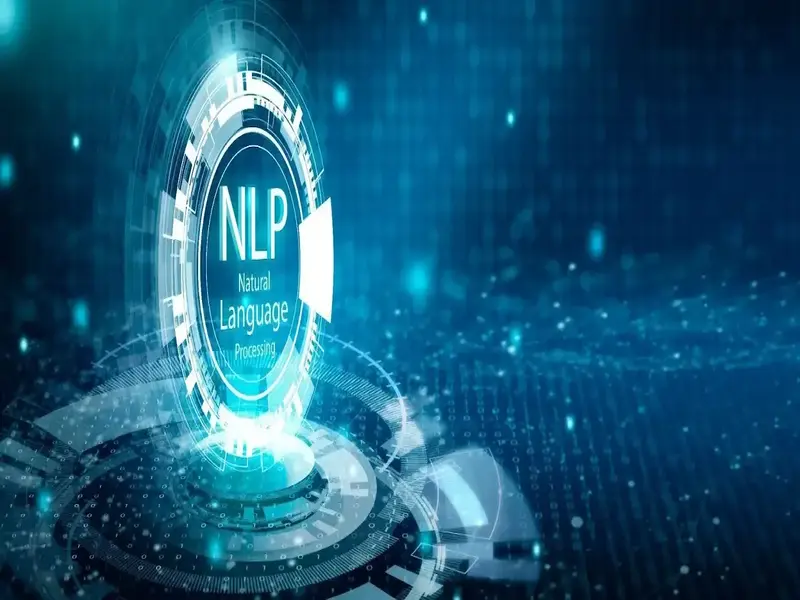
Natural Language Processing (NLP) is a field of computer science that focuses on the interaction between computers and human language. NLP has numerous applications in various industries, including healthcare. One of the most significant applications of NLP in healthcare is medical coding. This article will discuss the application of NLP in medical coding and its benefits over the current method of manual coding.
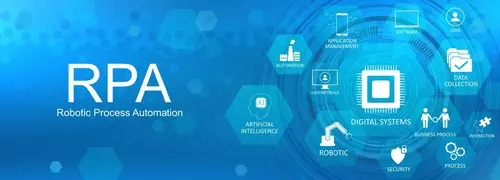
EHR interoperability is crucial in healthcare, allowing different EHR systems to share patient health information seamlessly. It is vital for better clinical care, efficiency, cost savings, and patient empowerment. Importantly, interoperability promotes innovation by enabling the development of new technologies that can improve patient care, making it a critical aspect of the healthcare industry.
The 21st century has seen a few attempts to increase the interoperability of EHRs. In 2016, Congress passed the 21st Century Cures Act, which granted the Secretary of Health and Human Services (HHS) the ability to identify "reasonable and necessary activities that do not constitute information blocking." Information blocking can be activities by actors in the healthcare space to stop the free flow of electronic healthcare information. In 2020, the Congress passed the Interoperability and Patient Access final rules to improve the fluidity with which patient data can flow to providers, patients, and payers. This legislation aimed to break down barriers in the US health system that prevent patient access to their health data, tamper interoperability and innovation, and hurt patients and payers.
Despite all the efforts detailed above, EHR interoperability remains a pipe dream, thus making developing and deploying new technologies very difficult. This article discusses ways to integrate with EHR and how Robotic Process Automation (RPA) is the most viable option. Before discussing EHR interoperability, let's discuss why we are discussing this topic and what XpertCoding is.

